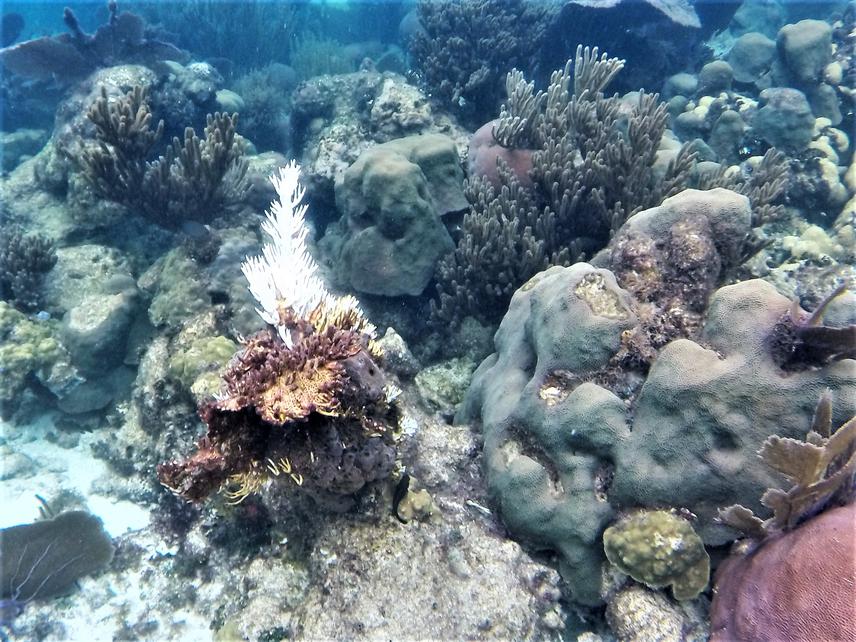Justin H Baumann
Other projects
28 Jul 2014
Characterizing Coral Resilience on the Belize Barrier Reef System Using Thermal History and Holobiont Physiology: Implications for Climate Change
10 Sep 2015
Continuing Research on Coral Acclimation on the Belize Barrier Reef System Using Thermal History and Holobiont Physiology
21 Feb 2018
Continuing Research on Coral Acclimatization on the Belize Mesoamerican Barrier Reef System
29 Apr 2019
Implementation and Scaling of Science-Based Approaches to Coral Restoration in Belize
To characterize coral communities across temperature regimes in Belize and understand the stress response of corals subjected to different environmental conditions.

As the climate continues to change and human populations grow, the world’s oceans are more at risk due to temperature stress, habitat degradation, pollution, and ocean acidification. It has become increasingly important to understand how corals will cope during this climate change interval. In order to do just that, I study the effects of global (temperature) and local (nutrients) stressors on coral communities. Thanks to Rufford Small Grant funding received in 2014 allowed me to characterize 13 reef sites on the Belize Barrier Reef System (BBRS) into “low”, “moderate”, and “extreme” thermal environments. Surveys have revealed that extreme communities are much less diverse than low and moderate communities, indicating that temperature plays a role in community composition. Continued Rufford support in 2015 allowed me to collect coral core specimens from 2 species of coral across 8 of the low and extreme thermal environments. These core samples are presently being analysed to measure the growth and calcification rates of these corals. If growth and calcification differ due to thermal environment we will be able to quantify it with these cores.
This project intends to further investigate the stress responses of corals from varying thermal regimes through a tank experiment. We will collect corals from our field sites and expose them to varying degrees of thermal stress and heterotrophic opportunity to study the impacts of short term temperature increases and feeding on coral stress response. The theory behind the experiment is that corals that have previously been subjected to warming or more temperature variation should do better when exposed to a new temperature stress event. Additionally, it has previously been shown that corals that are exposed to a temperature increase (but not a stress event) just prior to a stress event are better able to survive than those who do not. We plan to test both hypotheses in this experiment. We will also explore the role of heterotrophic feeding in the stress response and survival of corals from Belize, as feeding has been shown to alleviate stress in some coral species, particularly in corals nearer to shore.